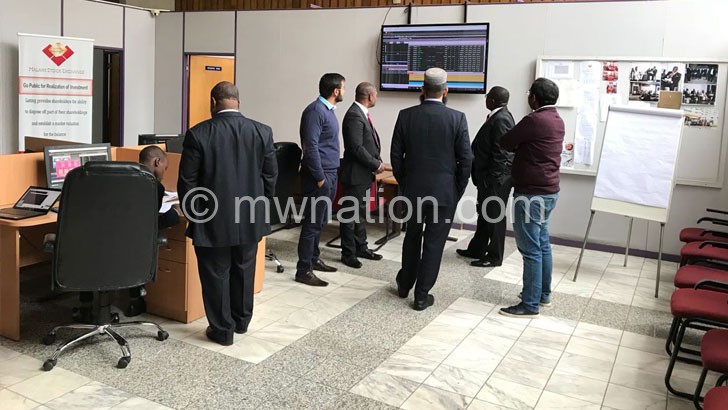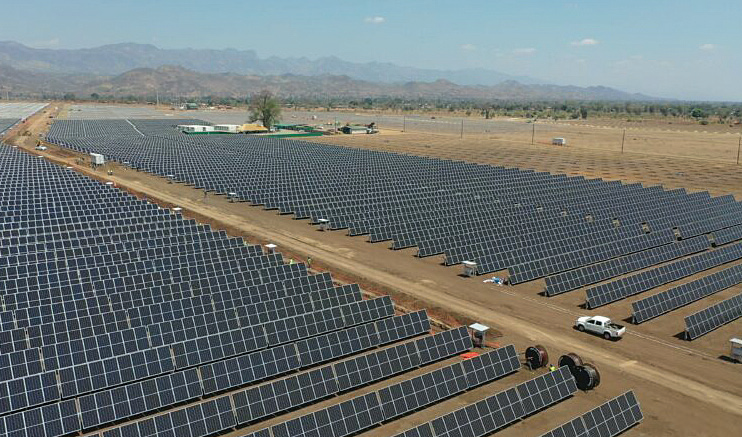Policy reforms key to Agoa success—US
United States (US) Ambassador David Young says Malawi needs economic policy reforms to fully maximise gains from the African Growth and Opportunity Act (Agoa) trade window.
Agoa, a US Government trade initiative passed in 2000 to deepen trade ties with Africa and help eligible African countries develop their economies, provides duty-free access to the US market and is due to expire in September 2025 after being renewed twice.

In an exclusive interview with Business Review last week in Blantyre, Young acknowledged that Malawi has not “really taken advantage of the Agoa opportunities” since becoming a beneficiary in 2000.
He said: “But again, this economic policy reform is very important part of what needs to happen to make trade and investment war attractive.
“We are implementing the Growth Poles project to equip businesses with skills that will help them explore market opportunities in the US and help with diversification.”
Young said this is because exports of tobacco have declined and transition to other agricultural crops, the need for increased mining activities are key areas to ensure Malawi does the best thing possible.
He, however, said in the mining agreements, there is need to strike a balance between getting a good deal for Malawi and not waiting for investors for so long.
Said Young: “Malawi needs to make ease of doing business one of the best in the world to jump-start the economy because you are really competing with Zambia, Tanzania, South Africa and others for investors, so you have be attractive as much as possible to get the private sector here.
“The US Government advocates for free market. We don’t tell companies where to trade. Companies will go where opportunities are. So, Malawi needs to create conditions that will make it possible to attract these investments.”
To maintain Agoa eligibility, countries must uphold several values that are core to free and fair societies such as rule of law, respect for human rights, combatting corruption and protecting workers’ rights.
In a nutshell, Agoa is intended to be a transformational tool to bolster inclusive prosperity across sub-Saharan Africa.
Since Agoa’s inception in 2000, Malawi has exported goods worth $1.55 billion (about K2.5 trillion) to the US market, with $1.15 billion (about K1.96 trillion) qualifying for Agoa preferences, ranking 15 out of 35 countries in Africa that have most utilised the trade window over the past 23 years.
Malawi’s exports to the US comprise mostly agricultural products such as tobacco, sugar, tea, and nuts.
Meanwhile, Malawi has joined other African countries to push for an early 10-year extension of the African Growth and Opportunity Act (Agoa) trade window beyond 2025
Ministry of Trade and Industry spokesperson Mayeso Msokera is on record as having said Malawi wants Agoa to be extended because it has contributed towards enhancing exports to the US since becoming a beneficiary in 2000.
On September 27 2023, US Senator John Kennedy introduced the Agoa Extension Act of 2023, a Bill that would extend the Agoa through September 2045.
In the current window, Malawi hoped to increase exports to the US through Agoa by 20 percent from $51.3 million (K87 billion) from 2016 as outlined in the National Agoa Response Strategy and Action Plan for Malawi.
Agoa has been key in helping the US work with sub-Saharan Africa to facilitate trade, reduce poverty, promote democracy and counter China’s growing influence in the region.
Congress first enacted the Agoa in 2000. The programme encourages African countries to adopt market-based economies, support democracy and protect due process and the rule of law.
In turn, Agoa-eligible countries receive duty-free access to thousands of products.






This was beautiful Admin. Thank you for your reflections.